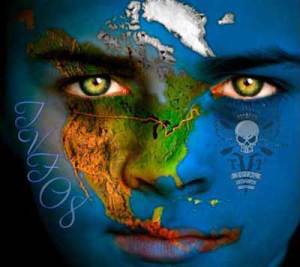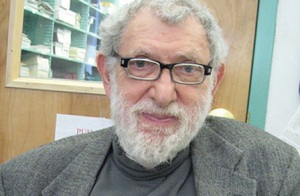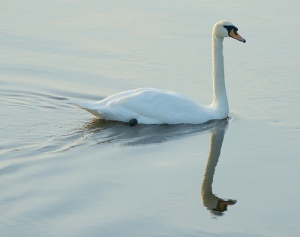Langston Hughes
Biography
James Langston Hughes was born in Missouri in Frebruary 1, 1902.One of Hughes’ finest essays appeared in the Nation in 1926, entitled “The Negro Artist and the Racial Mountain”. It spoke of Black writers and poets, “who would surrender racial pride in the name of a false integration,” where a talented Black writer would prefer to be considered a poet, not a Black poet, which to Hughes meant he subconsciously wanted to write like a white poet. Hughes argued, “no great poet has ever been afraid of being himself.” He wrote in this essay, “We younger Negro artists now intend to express our individual dark-skinned selves without fear or shame. If white people are pleased we are glad. If they aren’t, it doesn’t matter. We know we are beautiful. And ugly too… If colored people are pleased we are glad. If they are not, their displeasure doesn’t matter either. We build our temples for tomorrow, as strong as we know how and we stand on the top of the mountain, free within ourselves.” Langston Hughes was very influenced by Jazz. Also he wrote racial poems and poems about Jazz ans Blues. He was memeber of an abolitionis family. He died of cancer on May 22, 1967.
Langston Hughes reminds me of Martin Luther King. When I read his poems or literary works, it makes me feel that in a way Hughes was fighting for equality. We all know who Martin Luther King was, he also faought for unification and equality, he fought to have same rights as white people. Langsto Hughes wrote very racial poems, and reading the we can see how proud he was for being a black man. He too fought foe equality. Hughes being black he also wrote poems, he also was as creative and human as white people.
_________________________________________________________________________________________________
THE NEGRO SPEAKS OF RIVERS
By Langston Hughes
I’ve known rivers:
I’ve known rivers ancient as the world and older than the flow
of human blood in human veins.
My soul has grown deep like the rivers.
I bathed in the Euphrates when dawns were young.
I built my hut near the Congo and it lulled me to sleep.
I looked upon the Nile and raised the pyramids above it.
I heard the singing of the Mississippi when Abe Lincoln went
down to New Orleans, and I’ve seen its muddy bosom turn
all golden in the sunset.
I’ve known rivers:
Ancient, dusky rivers.
My soul has grown deep like the rivers.1922
_________________________________________________________________________________________________
CROSS
My old man’s a white old man
And my old mother’s black.
If ever I cursed my white old man
I take my curses back.
If ever I cursed my black old mother
And wished she were in hell,
I’m sorry for that evil wish
And now I wish her well
My old man died in a fine big house.
My ma died in a shack.
I wonder were I’m going to die.
_________________________________________________________________________________________________
I, TOO
Stewart, John. Benevolent economies: An exploration of literary patronage during the Harlem Renaissance. The University of Southern Mississipp. 2003 . 191 pages.
Tkweme, W. S.. Blues in Stereo: The Texts of Langston Hughes in Jazz Music.African American Review. Fall/Winter2008. Vol. 42 Issue 3/4. p503-512.
James Langston Hughes. Hughes. Accesed on April 19, 2011. http://www.redhotjazz.com/hughes.html
Langston Hughes Biography. Crossing Boundaries. Accesed on April 19, 2011. http://www.kansasheritage.org/crossingboundaries/page6e1.html.
_______________________________________________________________________________________________
________________________________________________________________________________________________
________________________________________________________________________________________________
John Hollander
Biogrphy
John Hollander is one of contemporary poetry’s foremost poets, editors, and anthologists. ohn Hollander was born on October 28, 1929 in New York City. He attended Columbia University and received both bachelor’s and master’s degrees in 1950 and 1952, respectively. He married Anne Loesser the year after earning his master’s degree and went on to Indiana University to complete his Ph.D. in 1959. The marriage produced two daughters. His first collection of poetry, A Crackling of Thorns, appeared in 1958 and was chosen by W. H. Auden to receive the Yale Series of Younger Poets award that same year. Hollander served as a Chancellor of the Academy of American Poets. Currently he lives in New Haven, Connecticut and teaches at Yale University.
__________________________________________________________________________________________________
Swan and Shadow
Dusk
Above the
water hang the
loud
flies
Here
O so
gray
then
What A pale signal will appear
When Soon before its shadow fades
Where Here in this pool of opened eye
In us No Upon us As at the very edges
of where we take shape in the dark air
this object bares its image awakening
ripples of recognition that will
brush darkness up into light
even after this bird this hour both drift by atop the perfect sad instant now
already passing out of sight
toward yet-untroubled reflection
this image bears its object darkening
into memorial shades Scattered bits of
light No of water Or something across
water Breaking up No Being regathered
soon Yet by then a swan will have
gone Yes out of mind into what
vast
pale
hush
of a
place
past
sudden dark as
if a swan
sang
_________________________________________________________________________________________________




Leave a comment